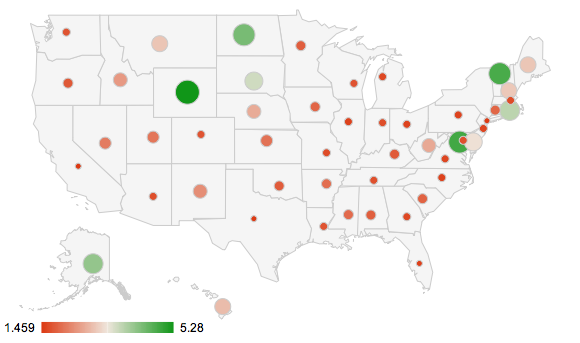"That it may be the interest of the assembly to do strict justice at all times, it should be an equal representation, or, in other words, equal interests among the people should have equal interests in it." That is what one of America's founders, John Adams, thought of government -- it ought to represent each citizen equally.
Yet when Americans go to the polls this November, in what many consider to be one of the most important presidential elections in history, the three most populated states in the country will be completely ignored.
For electing a president in the United States resembles a sport more than it does a democracy. Instead of handing the presidency to the person whom most people want, the electoral college sets up a much more fun-to-watch scavenger hunt: Each state has a certain number of points, and it's a race to see who can get more.
The electoral college exists to protect the interests of small, less populated states. If it were simply a popular vote, the theory goes, why would a candidate even bother to look at, say, North Dakota? It's a noble effort, but one that presents two startling issues that throw Adams' perception of government on it's head: It means the big states, instead of the small states, will be ignored; and it distorts the entire representative body of the country, giving some people far more power than others.
Considering the following graphic, which shows the amount of electors per 1,000,000 citizens in each of the 50 states.

Here's how equal representation works in America: I live in New York. If I pick up my bags and move to Wyoming before the election this fall, I will have four times more influence than I did a week ago. In fact, I could move to any state I choose and the value of my vote would change. So much for equal representation.
Worse yet, if you happen to live in a very politically biased area, such as Texas or California, don't count on any attention being thrown your way. In 2012, $87 million has already been spent on television ads supporting either President Obama or Governor Romney -- and all of it has been condensed into just nine "battleground" states. Here in New York, I have seen none of those ads, because thanks to our system of government, where you live determines how much your vote matters.
As for the argument that small states wouldn't matter in a popular vote, just look back a few elections. In the 2000 presidential race, for example, the difference in the popular vote between Al Gore and George W. Bush was a little over 500,000 votes -- less than the population of Wyoming, the smallest state.
Speaking of 2000, we should have learned our lesson. We saw the firestorm that erupted when the candidate with the more votes didn't become president. People were outraged, and for a good reason -- in a true democracy, the people decide, not some complex, irrational game.
